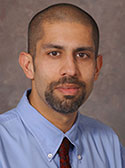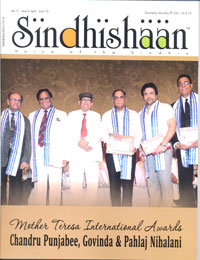![]()
RUMINATIONS FROM DEEP INSIDE
HEALING
By Lavjay Butani

“And he said unto them, Ye will surely say unto me this proverb, Physician, heal thyself: whatsoever we have heard done in Capernaum, do also here in thy country”: the Bible, Luke 4:23(King James Version)
Consistently, studies have shown that physicians have higher rates of suicide than the general population — in fact the highest rates of suicide than any other group! This, along with the high rates of substance abuse (10%) and depression, is sobering indeed, and made even more distressing when one recognizes that people entering the profession have a psychological profile similar to the general population! While most of these studies are from the US and the Western World, this grim picture is likely to be similar in India. Why, despite better access to health care, are physicians more likely to resort to dysfunctional behaviors and less likely to receive care?
The answer, unfortunately, lies within the culture of the medical profession. Competitive right from the get go, students are encouraged to not show their feelings, to not falter and keep concealed their vulnerabilities. Perfection rather than excellence is the mantra and one that is encouraged and rewarded. Even amongst the most humanistic physicians in the profession, there is a tendency to not feel one's own pain and suffering, but focus on that of our patients so as to provide them with care and comfort, the true role of a healer. The culture of medicine is a very isolating one- a profession full of 'dry drunks' as Abraham Verghese puts it in his book, The Tennis Partner, one in which physicians use titles, power and prestige just as others use drugs, and show little humanity towards themselves.
Yes, the profession does ask, no demand, from us the values of altruism (putting others ahead of our own needs), accountability, excellence and competence and humanism, but certainly not at the cost of our own souls. Humanism, in fact, has many facets and includes being 'human' towards patients, but not any more or less than being human towards our colleagues and certainly not any less than towards our own selves. And this mean taking care of ones self in times of need, the first step of which is recognizing when one needs this help. 'Self-humanism' should not be mistaken as selfishness, although one has to beware of the slippery slope that can lead from talk of self-care and work-life balance to self-absorption and profit, as opposed to the service orientation that the medical profession was created for. Self-care is the wellness and nurturing of the soul that can truly create a sense of wellbeing for us.
The Gita reminds us that we are no different from the universal truth, the all pervading reality. Nourishing the soul by keeping the company of wise men, by doing good, by slowing down and by recognizing that we are conduits through which our actions are conducted, are all ways of taking care of ourselves. For some, the path lies in meditation, for others in chanting, and for others in hard work and service. But all share one thing in common- letting go of attachment and rejoicing in every moment of every day, irrespective of the fruits of our actions, but always acting with good intentions and following one's values.
Developing such a culture can be hard, but the first step is to facilitate expressions of joy and sorrow and to acknowledge that these are human attributes that are natural and cathartic. And this means role modeling such actions; crying with those in pain, smiling with those who are happy and sharing the meaning of such emotions with our learners so they can see the humanness that permeates us all and makes us no different from everyone around us.
Such is the path to freedom and well being.



